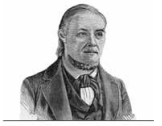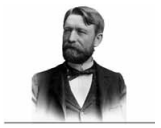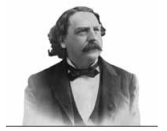ABOUT US
WHAT IS THE AFLC?
The Association of Free Lutheran Congregations (AFLC) is a family of independent Lutheran churches joyfully united in Christ and committed to living out the gospel together. We are a fellowship of congregations that freely choose to walk together in faith, love, and shared mission.
Our focus is simple: the Word of God, the work of the Holy Spirit, and the life-changing grace of Jesus Christ given to us through Word and sacrament. We believe every Christian is called and gifted to serve, and every congregation is free to follow Christ’s leading under His authority alone.
We cherish the historic Christian faith and the rich heritage of Lutheran theology, and we rejoice that the Holy Spirit gives abundant life that bears fruit. Our aim is to encourage personal faith, nurture spiritual growth, and equip people to share Jesus in everyday life.
At the heart of the AFLC is a deep trust in God's Spirit to unite us through love, truth, and joyful cooperation.
Our guiding documents
THE AFLC TODAY
GOSPEL: We make disciples by proclaiming the powerful Gospel message— that Jesus Christ lived in perfect obedience to the Father, was crucified for our sin, was resurrected by the power of the Holy Spirit, ascended into heaven, and will one day return to make all things new. We celebrate that His grace and forgiveness grant us true freedom to live with peace, joy, and hope.
CONGREGATION: We believe that the congregation is where God’s Kingdom is manifested and experienced in this world. We cherish that the congregation is free to be led by God’s Word and Spirit. We gladly cooperate in Gospel mission with other like-minded congregations for the salvation of souls.
HISTORY OF THE AFLC

Hans Nielsen Hauge
Around the beginning of the 1800s, a Norwegian farmer's son, a layman, began tramping over the mountains and valleys of the country preaching a message of repentance and personal salvation. Hans Nielsen Haugen was immediately branded a troublemaker by the government and the state church, and spent 10 years in prison The fire the Lord lit through him, however, could not be stifled.
Hauge's message and ministry reflected the spirit of Lutheran Pietism, a powerful movement of awakening that began among German Lutherans in the late 17th century. The pietistic emphasis on personal faith, godly living and study of Scripture caught fire among the common people, igniting a spiritual and social revolution whose impact is still evident today. Revival fires burned brightly through much of Scandinavia. These evangelical movements shaped the convictions of many of the Lutherans who planted the church in America during the 19th century. They brought their faith and love of education with them, and they wanted to make sure their children had schools where they could be trained in God's Word and useful skills. Many Lutheran colleges and seminaries, which exist today, began at this time.

Georg Sverdrup
Among those institutions was Augsburg College in Minneapolis, which in those days also comprised a preparatory school, an academy and a seminary. Two scholars from prominent Haugean families in Norway came to Augsburg to teach in the 1870s, bringing with them a genuinely radical view of Christian education, centered on Scripture and the simple doctrines of Christianity. Their names were Georg Sverdrup and Sven Oftedal.
These two young professors, having witnessed firsthand the opposition of the church hierarchy to the revival movements, had been driven in their frustration to take a fresh look at the New Testament church. Through their study of Scripture, they had some to a stunning conclusion: "...in the New Testament there is no talk about any bishopric... nor any church council, or synod. ...There is a congregation in each place where there are Christians, and this congregation has its elders or bishops; but there is no 'church ruler-ship' of any sort..." (Sverdrup).
In other words, the local congregation is the right form of God's kingdom on earth, and no power but God's Word and Spirit may dictate to it. This conviction was not only a matter of church government, but a vision of "living" Christianity. The church they sought to plant in the New World would promote a living Lutheran orthodoxy, served by shepherds who lead rather than overlords who dominate, emphasizing an evangelism that would result in changed lives and encourage lay people to exercise their spiritual gifts.

Sven Oftedal
In 1897 a group of like-minded congregations committed to these principles established the Lutheran Free Church. This group drafted a set of Fundamental Principles which would guide their operations. Momentum came in the form of a tremendous spiritual revival which swept the Norwegian Lutheran churches during the 1890s. Many students came to Augsburg as a direct result of it, and through the work of pastors who graduated from the seminary the Lutheran Free Church began to expand beyond its initial concentration in eastern North Dakota and northwestern Minnesota to other areas of the U.S. and Canada.
In time however the vision grew dim, and a new generation of leadership began to question the future of the Lutheran Free Church. They encouraged participation in a new merger, which produced the American Lutheran Church (1960). After much conflict and litigation, the FLC finally joined the ALC in 1962.
In October 1962, almost 300 people from seven states and two Canadian provinces gathered in Thief River Falls, Minnesota, to resist the merger and form what would become the Association of Free Lutheran Congregations, founded on the Fundamental Principles of the Lutheran Free Church.
